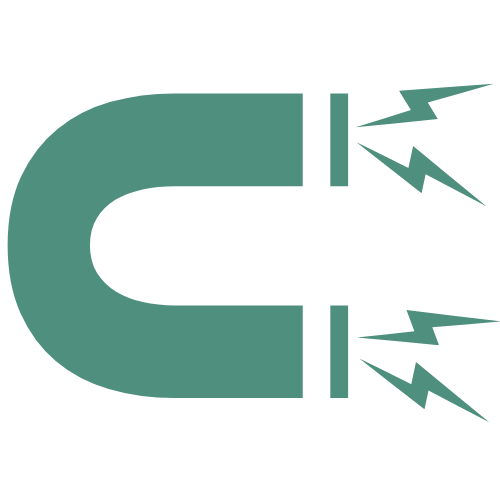One question comes up in every job interview. Answer it well and you’ll be a top contender for the job. But what’s the secret to getting invited to interview? Hint: you’ll need to answer that same interview question before the interview. Here’s how to get your resume noticed without trying to be someone you’re not, schmoozing, or selling your soul.
“Why should they hire me? I reallllly want to give useful information. I really do. But I don’t know how.“
That’s what one client recently wrote. He summed up what I’ve heard from hundreds of clients. They don’t know how to talk about their value, how to get their resume noticed, so the whole job search process feels off.
It’s also what I imagine almost every single person was thinking as they wrote the thousands of resumes I’ve reviewed over the years.
Why should we hire you?
The struggle is real, my friends.
Whether you’re entry level or an executive, lacking confidence or overflowing with it, folks start to squirm when asked, “Why should we hire you?”
Most people stall then start to sputter, even if its me, their friendly professional resume writer and interview coach, asking!
This is what I hear most often:
“Oh, good question. I should think about that.”
“Ugh, I hate this question. I never know what to say.”
“I have no idea who else they’re interviewing, so how should I know whether or why they should hire me?”
(Or they puff up and launch into hyperbole and superlatives. More on that, below.)
And then, after their squirming settles and their throats have cleared, many — most, even — make one or all of the following 3 mistakes.
Mistake #1: List Responsibilities
I’d wager more that 90% of the world’s resumes are guilty of this mistake. It’s the attempt to prove they should be hired by listing their responsibilities, tasks, and duties at previous jobs. These resumes read like job descriptions.
In fact, when I’m gathering information to craft a Rainmaker resume, and I ask why an employer should hire them, often my client will say, “let me get my job description.” And then they’ll start reading it to me.
Here are a few examples you might have seen on resumes that list responsibilities:
- Responsible for all political outreach with a diverse coalition of supporters.
- Processed applications for potential renters including calling references, performing credit checks, verified current employment, and tracked payments.
- Designed and placed campaigns for local advertising.
What does the reader, your prospective employer, learn from these lists?
Not much. Now they know that you know your responsibilities. But they don’t even learn if you did them well.
Hiring managers certainly won’t be able to discern from these duties why they should hire you or whether you’re worth the investment of their time and money.
Rx: Results Get Interviews
It’s okay to include a short summary overview of your role. But the meat of your resume should be about what you got done, specifically, rather than what you did, in general.
For instance:
- Drove down overdraft fees and late fees by 100%, saving company from unexpected disconnects and over $300/month by creating a spreadsheet database to track all transactions and due dates.
- Turned in 480K+ signatures – the largest in state history – and earned endorsements from 53 groups.
- Achieved a 5.9% annual growth rate over 10 years, going from $754K in sales a year to $1.2M, even as industry declined 0.8% a year on average over the same period
An employer will take notice of specific results over responsibilities, every time. They’ll think, “Hey, I want someone who can get my company the same kind of results! Let’s interview her.”
Entry-level note: When you don’t have much professional experience to draw from, consider demonstrating the results you got at school, especially on projects, as well as extra-curricular activities like sports, drama, or volunteering. And keep reading. The next two mistakes’ solutions will be especially applicable.
Mistake #2: List Skills
- Accomplished leader
- Outstanding ability to communicate effectively
- Excellent interpersonal skills
If you’ve read as many resumes as have most eye-strained hiring managers and I, you’ve seen endless “qualifications” sections filled with lists of hard and soft skills.
Often those skills are emphasized by superlative adverbs and adjectives, like excellent and outstanding.
This common mistake leans toward hyperbolic, unsubstantiated claims. It can have the unintended effect of discrediting the candidate. Instead of getting the employers notice, you might inadvertently have gotten your resume filed in the trash bin.
Rx: Quantify & Give Context to Get Noticed
- Created color-coded filing method to organize hundreds of files and stacks of paperwork, saving 5 minutes on average per interaction with client, 100s of work hours over time.
- Communicated across departments to keep 150 employees informed, on board, and in unison.
- Learned top 70 customers’ names and favorite coffee to help start their day with a smile – and build loyalty
Yep, you’ll want to demonstrate, and perhaps name outright, certain skills. It’s okay to include them in a short list of bullets, or better yet, embed those keywords within quantified, contextualized examples.
Quantify everything you can. And provide context by providing relevant details. This will help you demonstrate your target employers your skills and how you work, rather than simply make broad claims.
Executive-level Note: Don’t assume your accomplishments and skills are obvious, even if you’re a leader in your field. You’ve been immersed in your work, but don’t expect others to know what you do or how you do it. Set the stage. Provide context and specifics so you don’t leave them guessing.
Mistake #3: Because Me
Part of the reason the job search can feel grasp-y is that you’re just not sure what to say. Many job seekers resort to emphasizing their personal drivers, by talking about how much they want it, how much they admire and want to work for a company, or how good they are: really.
Remember the Objective section on old school resumes? This outdated notion set you up for thinking you should present what you’re looking for as one of the main pieces of evidence to why they should hire you. But no.
These days, you’ll see mistake #3 most on the cover letter. It’s part of the reason cover letters get such a bad rap, The good news? That means there’s a huge opportunity to improve and impress.
Here are some examples pulled from actual cover letters I’ve seen:
- Why should you hire me? Because I need the work!
- I’m confident I would be a great addition to the team.
- I’d be lucky to work with a company I admire, like yours.
It can be great to demonstrate your motivation, admiration, and maybe even confidence. But again, these need to be final flourishes, rather than your leading arguments.
Rx: Get Hired Because You Can Solve Their Problems
Rather than relying on what drives you to apply for a position as your primary evidence that they should hire you, switch perspectives. What matters most to your prospective employers?
Here’s what I ask my clients:
- What is most important to your primary target employer(s)?
- Which problems do they most need solved by hiring this position?
- What do they care about most?
- What matters to them in terms of qualifications, education, culture?
Most companies hire to get tasks done, sure. Ultimately, however, they’re going to hire the candidate who can best help them reach their big goals.
Knowing your industry and target companies can really help you understand what matters to your prospective employers. But even if you don’t know much about their specifics, rely on the job description and your deductive reasoning.
Imagine you’re the hiring manager. Ask yourself, what are the top three things I’d want to know about an applicant to help me see them as a good candidate.
Then, use the cover letter and job interview to speak to your experience, education, or projects that demonstrate your solving or improving those top three problems and priorities.
You don’t have to lie, pander, exaggerate, beg, brag, or sell your soul to get a job, even in a down economy.
Speak to the priorities and drivers of your target employers. Provide results, achievements, and accomplishments rather than snooze-fest lists of responsibilities. And lend credibility to your skills and tasks by quantifying them and providing context.
When you don’t know what to say, it’s common to think you need to rely on smooth talk, emphasis, or some other approach that feels off. Knowing what to talk about – what matters to them – and how to talk about it – share specific, quantified examples and results makes all the difference.
No need to sell your soul. Simply show up, care about their needs, speak truthfully and specifically, and be you.
Want to ask a question of your own that I can answer next time? Ask it here!
Want more information right now on how you Recession-Proof Your Career? Sign up for my FREE mini-course right here!


